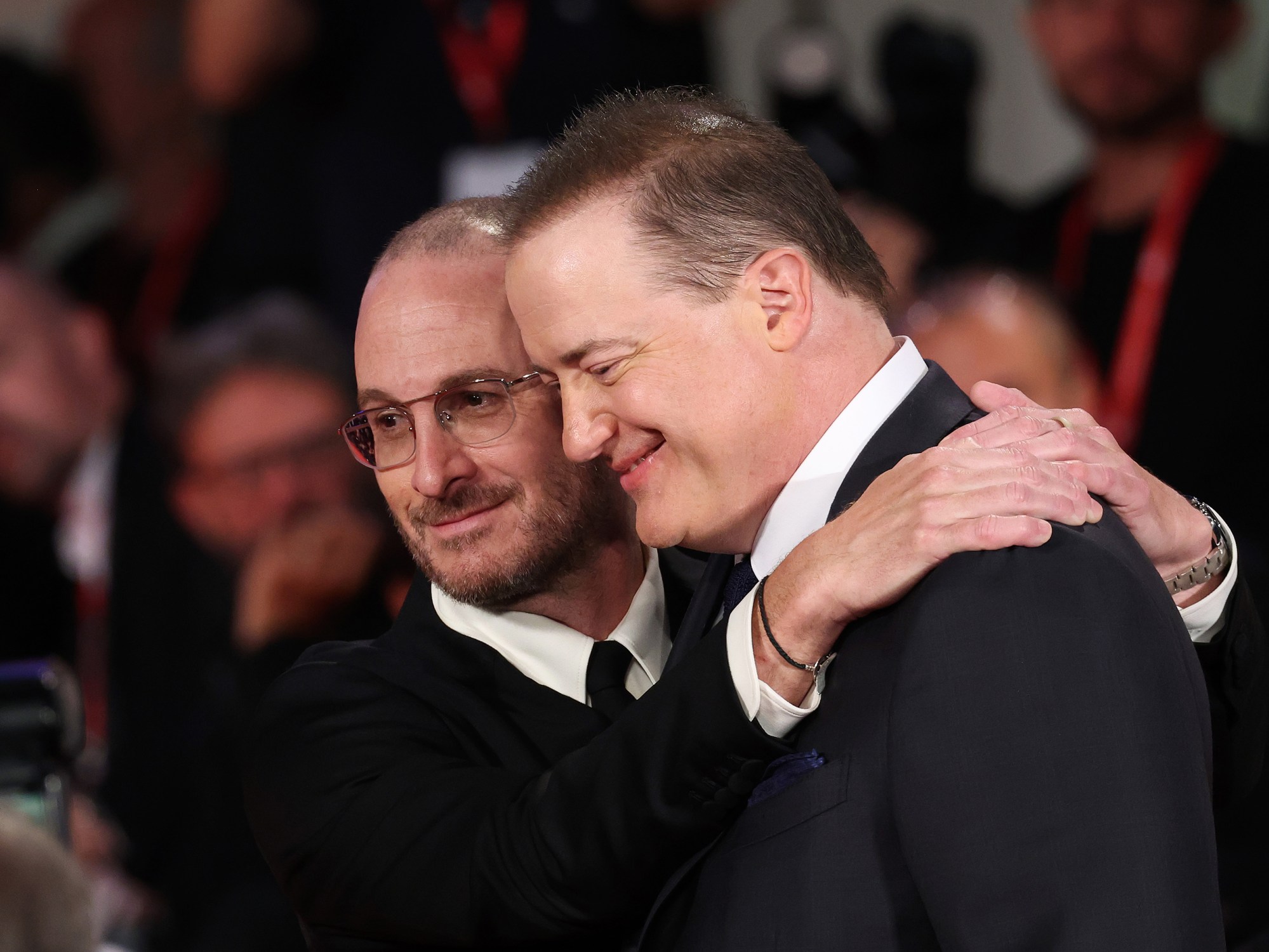
- Festivals
Venice 2022: “The Whale”, Brendan Fraser, Darren Aronofsky
As the Darren Aronofsky film, The Whale, begins, Brendan Fraser’s voice is heard during a Zoom call. The camera is off. The voice is beautiful and kind. Students fill the screen, but the teacher’s Zoom screen remains black, allowing the imagination to create the beauty that belongs to that voice.
The juxtaposition between the voice and the reality is deliberate. When we see the ‘teacher’, it belongs to the titular character. The view is shocking. An obese man, with thinning hair, spills out of his seat. We watch as he consumes and chokes on his food in a manner that has created the body we now have before us.
The visual itself will stop you. But the sight of someone who, clearly unhealthy, is consuming so gluttonously will elicit revulsion before you can edit your response. Anyone who spends time with Charlie has to overcome the bias society carries towards the obese. Initially, that includes the audience.
“I think Charlie is the most heroic man I have ever played,” Brendan Frasier says, pushing back at the one-dimensional view of a person based on their looks. “His superpower is to see the good in others and bring that out in them. In that process, he’s on his journey of salvation.”
The star of The Whale explained the appeal of the role in the press conference at the Venice Film Festival. Frasier’s shapely form has often been the focus of early roles, from George of the Jungle to Gods and Monsters. Now, as an obese teacher wrestling with choices that have led him to this place in his life, Fraser is aware of the subject’s sensitivity. He addresses it head-on. “I looked different in those days. My journey to where I am now has been to explore as many characters as I can. This (role) presented the biggest challenge to me.”
The film explores friendship and the paths people take in the name of love. For whom do you sacrifice? Are you doing it for yourself? For your child? What does religion provide when you are told that there is no salvation because of a sexual orientation? Is it okay to leave your family when you find love somewhere else? Or do you stay and endure?
Audiences will not be surprised to discover that The Whale is based on a play with the same name. The playwright, Samuel D. Hunter, admits that the character of Charlie is a personal one. “It’s set in my hometown, a little town in Northern Idaho called Moscow. I also have a history of self-medicating with food. A history of depression. I used to be a lot bigger than I am now. I also went to a fundamentalist religious high school.” He takes a pause in a deep breath. “I was a gay kid in a fundamentalist religious high school, which was not easy. None of my plays are directly autobiographical but they all pull from a very personal place. This one might be my most personal. I was afraid to write it.”
“When I actually did write it,” Hunter continues, “I did it from a profound place of love and empathy. I wanted to render somebody who had an unwavering faith in the goodness of human beings, in the inherent worth of human beings, despite everything that had happened in his life. I wanted him to be a lighthouse in the middle of a dark, dark sea. That’s what allowed me to write the play, that sense of hope and optimism and faith in other people – because that’s what saved me.”
Charlie’s massive body is giving out. As he chooses not to go to the hospital, he is aware that his choices limit his time on the planet. The impetus of the people who choose to be in his life becomes clearer.
The Whale asks a lot of its audience. The characters are complex. Each one of them has an unlikeable aspect. None more so than Sadie Sink (of Stranger Things fame), who portrays Fraser’s estranged daughter. “When she sees Charlie after so many years – someone she doesn’t even know but who has villainized her entire life – she’s got a lot of things to say,” notes the actress of her character’s toxic personality. “She comes in hot. But, I think, what she’s not expecting is someone who just cares so much about her.”
The Texan native sheds further light into the inner workings of The Whale’s daughter. “She is someone who hasn’t experienced any kind of parental care – or love – in a very long time. She’s especially not expecting it from the dad who left her, who she thinks cares about her least out of anyone. For someone like Charlie to see that there’s good in someone like Ellie, it throws her for a loop.” That caring – the choice by Charlie to take the kinder route in the face of a brutal world – goes with the theme of the film and was one of the attractions for the director of the play.
‘People are incapable of not caring’ is a line from the play which has made its way into the script. Aronofsky (The Wrestler, Black Swan) sees that concept as the main reason why he made the film. “I think that’s the most important message to put out in the world right now. Everyone’s leaning into the cynicism and darkness and giving up hope – exactly what we don’t need right now. We have to lean into the idea that, underneath it all, we do care about each other. That’s really what we have to hold onto and prove to each other.”

